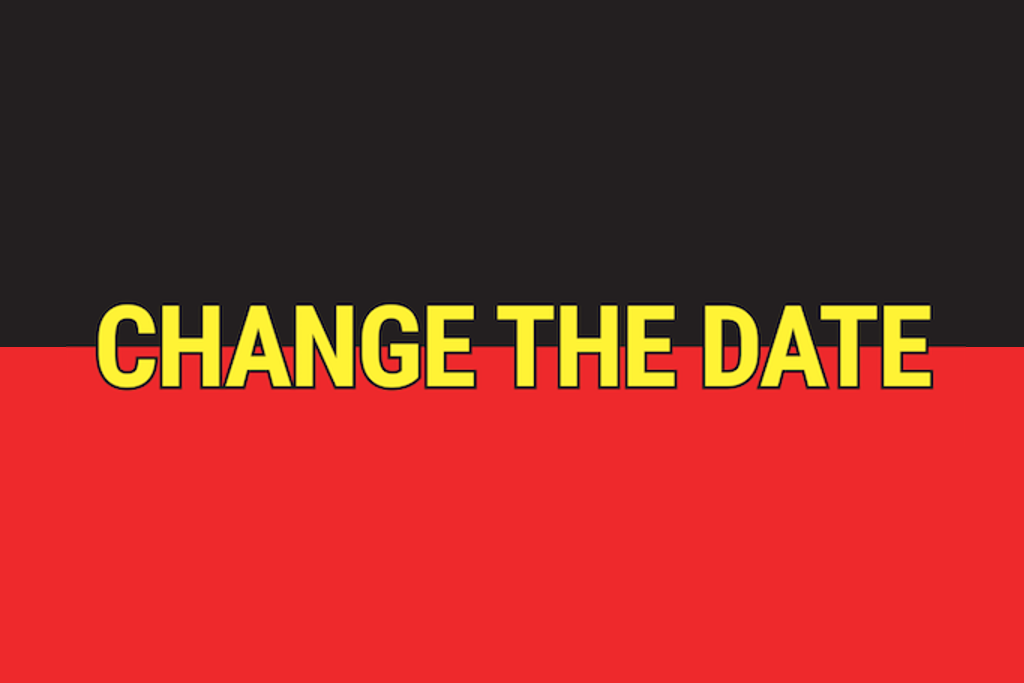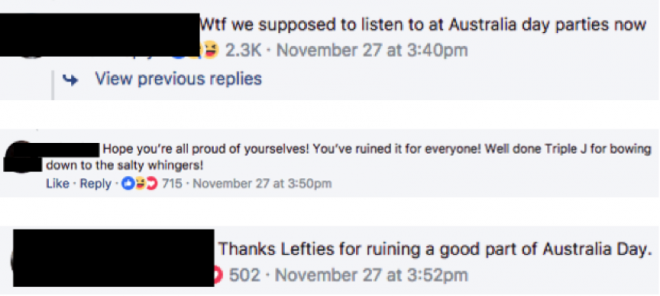Why I Stopped Celebrating On January 26
If we can’t ‘give up’ a day of partying out of respect for a day of mourning, how can we expect to achieve more significant change?

In 2018, Junkee published a series, produced by young Australian writers, called “This Is Why I Don’t Celebrate Australia Day”.
On January 26, 2017 I went to the Invasion Day rallies starting at The Block in Redfern. This year I plan to do the same. But it wasn’t always like this.
On January 26, 2016 I hosted a ‘Hottest 100’ house party. We ate, drank, fired up the barbie, lazed around the pool, listened to music, and had a great old festive time. We also asked guests to donate to AIME, an educational program for Indigenous students. It was an attempt to celebrate being Australian and enjoy the public holiday with mates while still acknowledging that January 26 as ‘Australia Day’ is not necessarily something to endorse, given what the day means for many Indigenous Australians.
By this logic, we could get the best of both worlds. We could be celebratory, proud Australians who were also sensitive and respectful, at the very same time.
It’s an appealing and seemingly credible kind of reasoning. It allows us to feel good about ourselves while not really changing our behaviour at all. It’s also a nice, palatable political stance.
In a recent video posted to social media, Prime Minister Malcolm Turnbull accepted that “European settlement in Australia has been complex and tragic for Indigenous Australians”, but then asked us to “celebrate … all of our history”.
A free country debates its history, it does not deny it.
Australia Day is Australia's day – a day when we come together and celebrate our nation and all of its history. pic.twitter.com/8EUepygqE8— Malcolm Turnbull (@TurnbullMalcolm) January 15, 2018
According to the PM, we can celebrate on a day we know to be tragic, so long as we acknowledge that we know it’s a tragic day.
I no longer buy this logic. I no longer buy this cognitive dissonance. It’s a twisted and disrespectful kind of reasoning that should be rejected. How can we genuinely show respect while celebrating on a day that reflects deep suffering for First Australians?
This is not to say that we should not show our pride in being Australian – we absolutely should. I just don’t think we should do this on January 26. No Australian should celebrate on a day of mourning.
Some retort that moves to change the date are unpatriotic. They say that changing the date involves surrendering national pride and unity to the interests of a minority group. But minority or not, everyone in our society should have the right to feel like they belong.
I believe that changing the date is an act of patriotism and inclusiveness. We should change the date because Australia Day should be a day for all Australians to celebrate. We can have a barbie, a swim and a few drinks on any day of the year.
But something that is more core to the Australian identity than these recreational activities are our values – values of a fair go, mateship, and celebration of multiculturalism. This Australian identity would be best celebrated on a day other than January 26.
Yet many are reluctant to give up January 26 as a time to celebrate. I too am guilty of this reluctance.
But if we interrogate this reluctance, what do we find? What is at stake when we consider changing the date? We find that we are weighing up the right of non-Indigenous Australians to celebrate on one particular day, against the right of Indigenous Australians to mourn on one particularly tragic day.
We can see this in the many outraged Facebook responses to triple j’s recent announcement that they are changing the date of the Hottest 100:

If many can’t ‘give up’ a day of partying out of respect for a day of mourning, how can we expect to achieve more significant change? How can we close the gap? How can we reduce appalling Indigenous incarceration rates? How can we sign a treaty?
This is why this debate is so important. In part, the state of this debate acts as a measure of the genuine respect non-Indigenous Australians afford Indigenous Australians, and the likelihood real change is going to come for Indigenous rights. It’s a test of our moral compass as a nation. We all need to have a good, hard look at ourselves and ask: do we really value the right to celebrate more than the right to mourn? If so, is this the kind of nation we want to be?
Will de Waal is a lawyer working in the social justice sector. When he is not lawyering he is drumming and/or singing sea shanties.